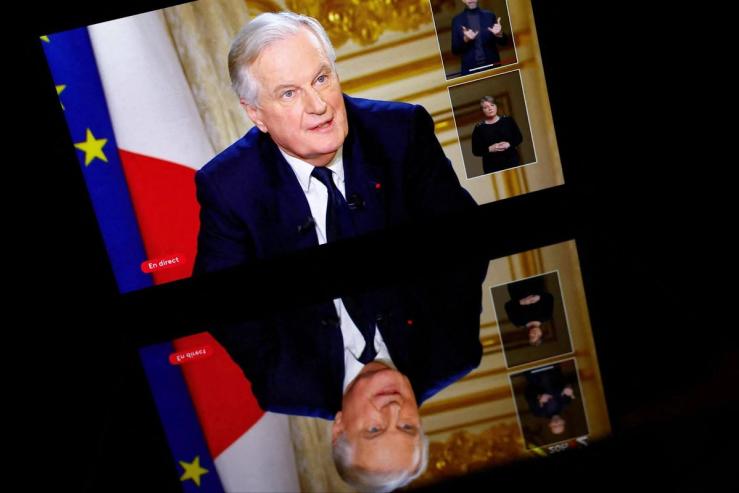The News
France’s government collapsed Wednesday after the far-right and leftist parties voted together to oust the administration of Prime Minister Michel Barnier after a dispute over the budget.
With 331 lawmakers voting against the Barnier government, France has been plunged into a fresh political crisis less than six months after President Emmanuel Macron called snap elections in July that led to weeks of political wrangling. Following the vote, opposition lawmakers called for Macron, whose term ends in 2027, to step down.
The ouster, the first time a French government has lost a no-confidence vote since 1962, makes Barnier the shortest-serving prime minister in modern French history.
His cabinet is expected to stay in place as a caretaker administration until Macron is able to appoint a new premier.
SIGNALS
The far-right’s true target may be Macron
The “chaos” that is sure to ensue from Barnier’s ousting is what Marine Le Pen and her far-right party National Rally really want, Politico argued. The party has shifted priorities repeatedly during the contentious budget discussions, despite Barnier making concessions. But the prime minister could have “handed them Notre-Dame and it wouldn’t change a thing. All they want is for the government to fall,” a pro-Macron senator said. Some believe the National Rally’s true aim is to push Macron out, giving Le Pen “the greatest opportunity of her career” if a presidential election is called. For now, Macron has dismissed that possibility, describing it as “political fiction.”
Markets are suffering from the political turmoil
Even before the government collapsed, the political turbulence was felt in the markets: French bond yields are above those of Greece, while the French CAC 40 stock index is down about 10% since July, trailing other European indexes. The turmoil also weighed on the euro, which fell as much as 1.1%. While Barnier warned ousting him could trigger a “storm” for the country’s finances, an all-out sovereign debt crisis is unlikely, Reuters noted, though experts do expect the situation to hurt businesses and consumers. Combined with the political crisis in neighboring Germany, Europe’s biggest economy, the European Union looks particularly weak in the face of threats from Russia and uncertainty in the US, The Telegraph wrote.


